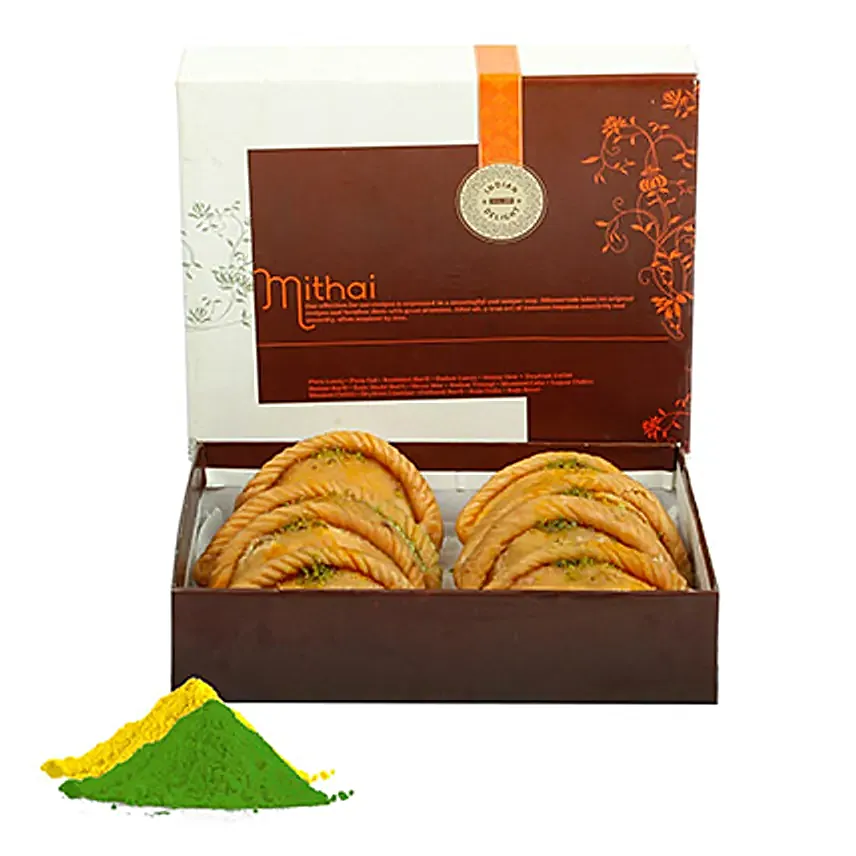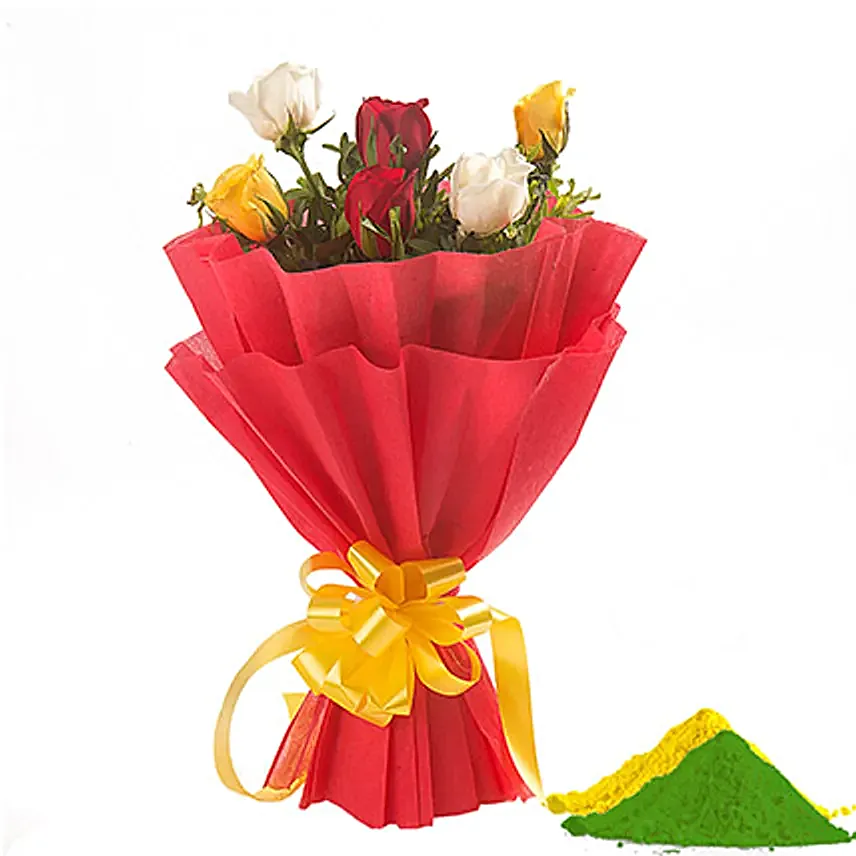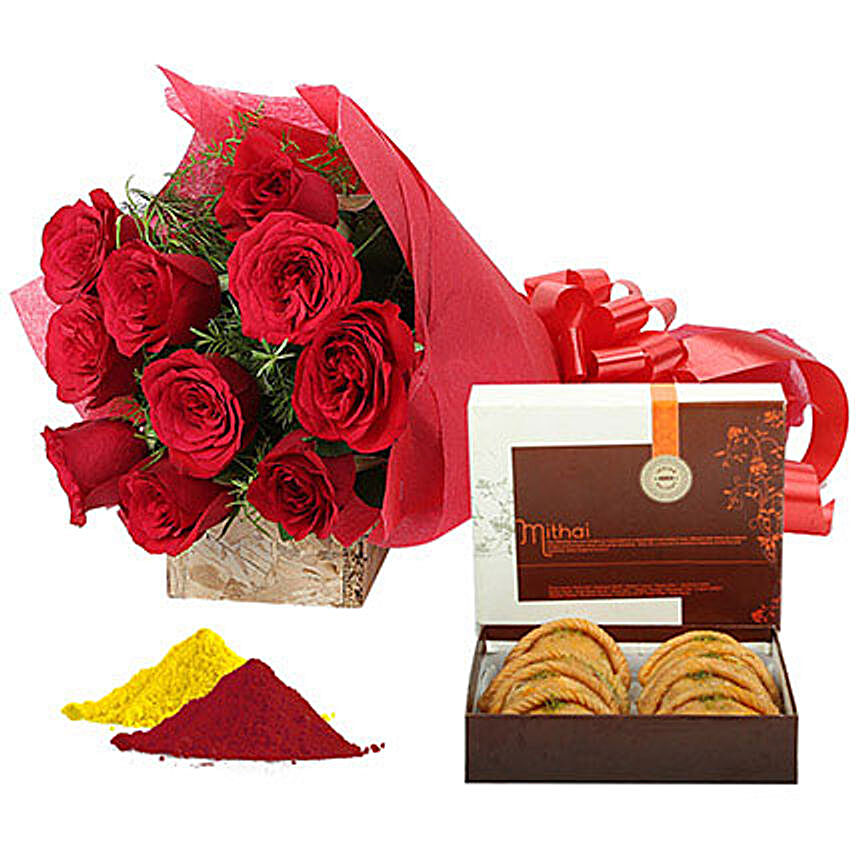About Holi
Holi is a traditional Hindu festival that originated in India but it is also celebrated in other parts of Asia and rest of the world wherever Indians reside. Some call it “festival of colors” and some call it “festival of love”. But basically, this festival draws an end to evil, concludes winter season, and marks the arrival of spring. So, this is a time to rejoice with loved ones forgetting all old history of painful moments. As per the Vikram Samvat Hindu calendar, Holi falls on the full moon day in the month of Phalgun which is during the end of February or the middle of March. The eve of Holi is known as Holika Dahan or Chhoti Holi while the next day is called Dhuleti, Rangwali Holi, Phagwah, or Dhulandi.
Apart from the Holika Dahan, playing with colors, and eating lavish food & dessert, Holi is also about lovely song and dance and Bhaang! It is also said that the natural Holi colors ward off various seasonal airborne diseases and this is one of the major reasons behind playing Holi
Check some more information about Holi:
Any religious festival is backed by several thoughts and anecdotes. Take a look at some of the stories behind Holi celebration.
The Vishnu Legend:
King Hiranyakashipu found in the Chapter 7 of Bhagvata Purana was the king of the Asuras – the demons. He received a boon that endowed him with some special powers – neither a human beings nor an animal can kill him ever, he cannot be killed in indoor or outdoor, he cannot be killed at night or day, he cannot be finished either by astra or by shashtra, and he cannot be killed on land or in water or air. So, this king grew haughty and compared himself to God demanding that everyone should worship him. King Hiranyakashipu’s son Prahlada never agreed to that and kept worshipping Vishnu. So, he started torturing Prahlada but that didn’t affect much. Now Prahlada’s evil aunt, Holika conned him to sit on a pyre along with her. She covered herself with a cloak so that the fire cannot destroy her while Prahlada didn’t take any protection. Now, as the fire flared up, Holika’s cloak flew and covered Prahlada and thus he was saved while Holika was burnt. Lord Vishnu, in the avatar of Narasimha – half human & half lion came to meet Hiranyakashipu at dusk and placed him on his lap (thus validating the boon that he cannot be killed in land or water or air) and killed him with his claws.
Since then the Holika Dahan takes place on the eve of Holi and that celebrates the victory of good over evil.The Krishna legend
Lord Krishna as we all know grew up in Braj of Uttar Pradesh. He was dark skinned because Putana – a lady demon poisoned him during his childhood with her breast milk. And in his youth, Lord Krishna was not quite hopeful whether the fair-skinned and beautiful Radha would like him or not. So, his mother asked him to approach Radha and ask her to color his face in any color she wished. As she does that, Krishna & Radha becomes a couple. Since then this playful coloring of the face is held as Holi.
In other Hindu traditions like Shaivism or Skhatism, Holi is associated with Lord Shiva. It is said that Lord Shiva was in deep meditation and Parvati wanted him to regain his senses. So, she took the help of Kamdev or lord of love on Vasant Panchami. Kamdev shot an arrow at Lord Shiva and the Lord opened his eyes and he was so angry that he turned Kamdev into ashes. So, Kamdev’s wife Rati and Lord Shiva’s wife Parvati both were upset with this temper of Lord Shiva. Rati then started to her meditative asceticism which continued for 40 days. Lord Shiva then forgave Kamdev and exactly 40 days after Vasant Panchami, Kamdev resurrected and this incident was celebrated as Holi.
The Cultural Significance of Holi:
All over India and its subcontinent, Holi has its cultural significance. The basic aim of this festival is to put an end to all gloomy days, past aches, and misunderstandings of yesteryears and forgive people. The colors of Holi boost people to start everything new. Holi also concludes winter season and initiates spring season. So, the change in nature tallies with the change in attitude of people too!
Apart from the Hindus, the Sikhs, the Jains & Newar Buddhists also celebrate Holi. All over India, Holi is a gazetted holiday so schools, colleges, & offices remain closed on this day.






